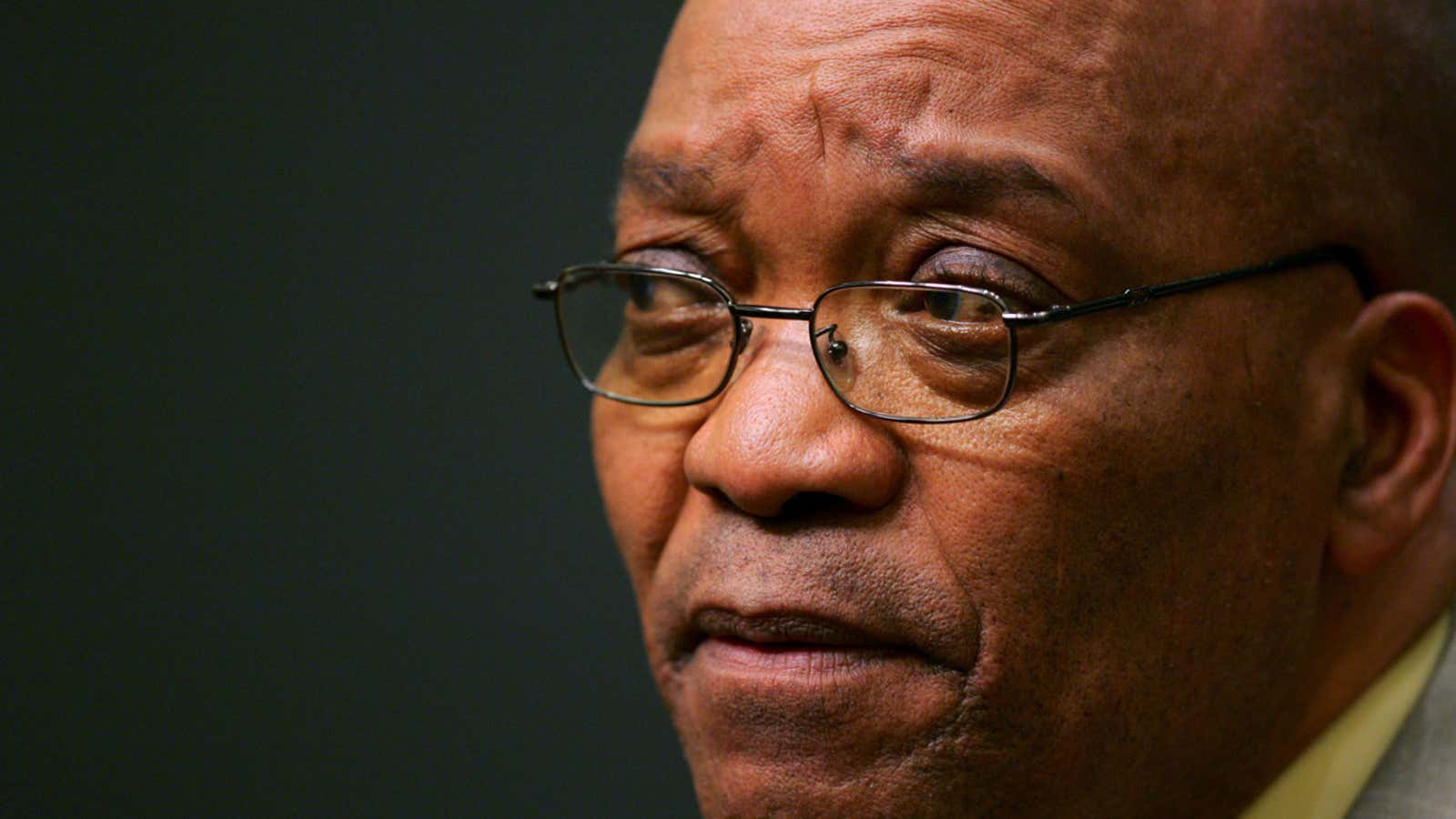South Africa’s embattled former president Jacob Zuma will stand trial for the corruption allegations that have hung over him and the country since the 1990s.
In a televised statement on Mar. 16, director of the national prosecuting authority Shaun Abrahams said he believed there were “reasonable prospects of a successful prosecution” of Zuma.
“I’m of the view that a trial court would be the most appropriate forum for these issues to be ventilated and decided upon,” said Abrahams, adding that Zuma’s corruption allegations have had a “long, litigious, unending history.”
Zuma, who turns 76 next month, will stand trial in his home province of Kwa-Zulu Natal. He will face 16 charges of fraud, corruption and racketeering based on 783 counts of wrongdoing. Prosecutors dismissed Zuma’s last-ditch attempt in January to prove why should not stand trial.
The charges relate to a deal with French arms dealer Thales, who allegedly bribed Zuma in order to secure political protection from an investigation into a controversial arms deal during the Mandela years. Then known as Thomson-CSF, the deal was facilitated by Zuma’s former financial advisor, Schabir Shaik (who may end up being the state’s star witness).
Shaik was already tried and found guilty in 2005, but Zuma’s cases was thrown out, delayed and then eventually reinstated in a politicized back-and-forth and that was always in the background of Zuma’s nine years in power. Zuma was able to avoid prosecution through the “spy tapes,” recording that allegedly showed that he was the victim of a conspiracy. Only last year did a court rule that the decision to drop charges based on these shadowy tapes was irrational.
The 783 counts have occupied South Africa’s public imagination for so long, adding to the allure that Zuma was invincible. Yet, after stepping down as ANC president in December and an unsuccessful bid to anoint his chosen candidate, Zuma is now more vulnerable than ever. In February, he was forced to step down more than a year before his term was to end.
Still, even in his resignation speech, Zuma made something of a veiled threat that he had enough supporters willing to go to great lengths for him. As they did with his 2008 rape trial, his supporters may push him to fight one last time.
